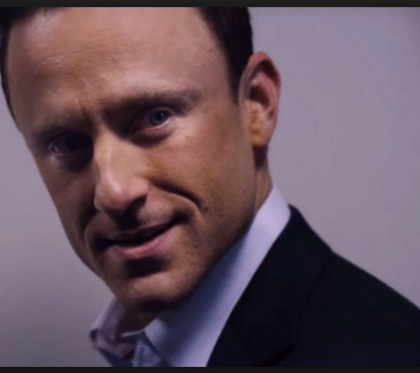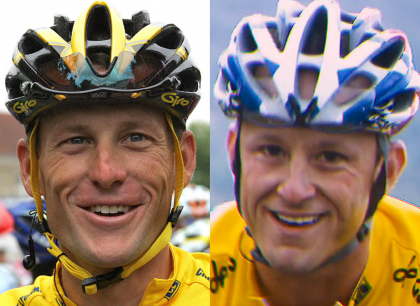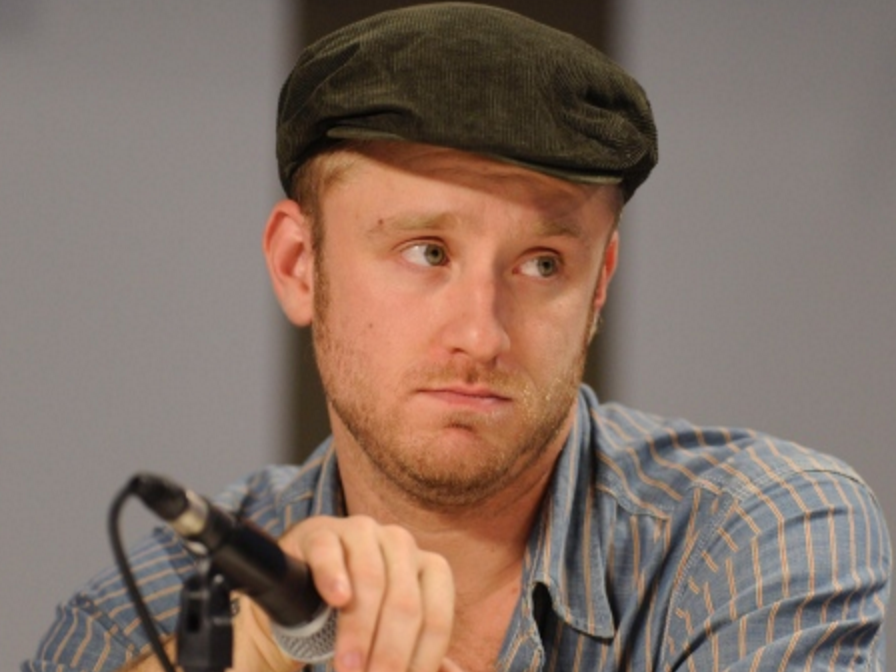 There’s a moment in “The Program,” Stephen Frears’s new biopic about Lance Armstrong’s rise and fall, in which the cycling champion, then at the top of his career, muses about who will play him in an upcoming biopic. “It’s supposed to be Matt Damon but I think it’s gonna be Jake Gyllenhaal,” he muses, pronouncing the latter man’s name with a hard “G.” The meta-joke, of course, is that this Armstrong is played by Ben Foster, that stealth bomb of an actor who brings a moody, broody intensity to everything from “X-Men” to “Six Feet Under.” It’s a clear indication of how Armstrong’s image has changed since his heyday.
There’s a moment in “The Program,” Stephen Frears’s new biopic about Lance Armstrong’s rise and fall, in which the cycling champion, then at the top of his career, muses about who will play him in an upcoming biopic. “It’s supposed to be Matt Damon but I think it’s gonna be Jake Gyllenhaal,” he muses, pronouncing the latter man’s name with a hard “G.” The meta-joke, of course, is that this Armstrong is played by Ben Foster, that stealth bomb of an actor who brings a moody, broody intensity to everything from “X-Men” to “Six Feet Under.” It’s a clear indication of how Armstrong’s image has changed since his heyday.
Armstrong’s story has been the stuff of public consumption for decades, with his malfeasances already documented in Alex Gibney’s jaw-dropping 2013 documentary “The Armstrong Lie.” This film, based upon reporter David Walsh’s book Seven Deadly Sins: My Pursuit of Lance Armstrong, wisely foregoes the same turf, chronicling instead Armstrong’s use (and obfuscation) of performance-enhancing drugs through the lens of Walsh’s decades-long investigation of the seven-time Tour de France winner. At a lean 103 minutes, though, this is less of a journalistic thriller than a profile of malignant narcissism fueled by chemistry. It is perfectly fascinating, if not perfectly executed.
Frears’s films (“The Queen,” “Philomena,” “High Fidelity”) have never been touted for their aesthetic charms but here that modest approach mostly serves him. This looks like a sports reel, and boasts an appealing soundtrack of late punk punctuated by an ESPN-style score. Fake news and racing footage abound – all quick zooms and flashy sideways angles – as do tremulous, tough-guy voiceovers from Armstrong and Walsh (affably aggressive Chris O’Dowd, in a neat spot of casting), who serves as a kind of commentator here. But because the writer is too predatory to claim the moral high ground, the film’s conscience is embodied by Floyd Landis (Jesse Plemons), Armstrong’s doping teammate who eventually turned whistleblower and was stripped of his own Tour de France title.
Sticking closely to Walsh’s narrative, the film spares us details of Armstrong’s personal life, showing his wife and kids in only the quickest of montages, and keeping his beloved mommy completely off-screen. (Armstrong has referred to his long-absent biological father as a mere “DNA donor.”) Instead, we watch Armstrong in scenes that since have been described ad nauseum – the threats he delivered to fellow cyclists, the lie-riddled inspirational talks he gave about his cancer battle, and his creepy alliance with Dr. Michele Ferrari (Guillaume Canet), who designed the doping program used by the U.S. Postal Service team on which Armstrong rode. The most compelling images are of Armstrong and his teammates matter-of-factly going about it in trailers and in hotel rooms. By now we know without a shadow of a doubt that this happened – he admitted it to Oprah! – but it still blows the mind, especially given his emphasis on clean living. This is a dude who campaigned against tobacco and had already defeated a cancer linked to steroid use, for heaven’s sake. Nothing could make it clearer that he was not just willing to eviscerate others but also himself in order to remain on top. Indeed, he was so blinded by his need to dominate that he came back from retirement, which pretty much ensured his demise.
In interviews, Foster – who characteristically invested so much in his character that he tried performance-enhancing drugs himself has admitted to a certain admiration for Armstrong. This is evident in the compassion built into his portrayal, which adds complexity to the slick veneer of Frears’s obvious antipathy for his subject. “Belief and will got [Armstrong] through, not dope,” the actor has said. There’s some truth to this, I suspect. Few athletes in history have rebounded so completely from advanced metastatic cancer, and so many Tour de France participants were doping during Armstrong’s peak that his true edge likely stemmed from a  In interviews, Foster – who characteristically invested so much in his character that he bottomless hunger to win. Foster captures this in an elegant physical shorthand of squared jaw and shoulders that contrasts sharply with his rapidly shifting eyes and anxiously tucked hands. Add in that singsong Texan drawl and an aggressively mirthless laugh and it’s an almost clinical portrait of the machinery of pathological narcissism. Certainly is chilling. There are very few moments in which we happen upon Armstrong alone in this film but each one reveals a little boy lost in eternal discontent. It’s an uncanny excavation.
In interviews, Foster – who characteristically invested so much in his character that he bottomless hunger to win. Foster captures this in an elegant physical shorthand of squared jaw and shoulders that contrasts sharply with his rapidly shifting eyes and anxiously tucked hands. Add in that singsong Texan drawl and an aggressively mirthless laugh and it’s an almost clinical portrait of the machinery of pathological narcissism. Certainly is chilling. There are very few moments in which we happen upon Armstrong alone in this film but each one reveals a little boy lost in eternal discontent. It’s an uncanny excavation.
This was originally published at Signature.
